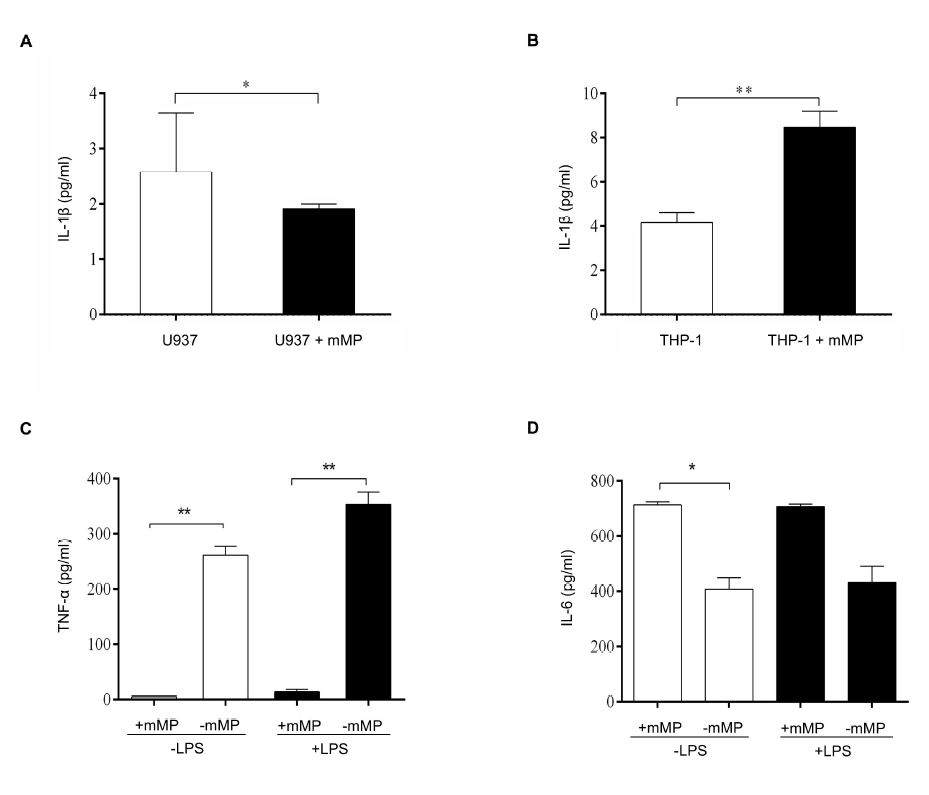Monocytic microparticles enhance proinflammatory cytokine secretion by monocytes and activate endothelial cells
DOI:
https://doi.org/10.15419/bmrat.v9i6.747Keywords:
Adhesion molecules, cytokines, endothelial cells, inflammation, monocytic microparticlesAbstract
Background: Monocytic microparticles (mMPs) are microparticles derived from activated human monocytes and play an important role in cell-to-cell communication in the circulation. Endothelial cells also exist in the circulation and are thought to have a complex interaction with the released mMPs. Both mMPs and endothelial cells are important players in inflammation. However, the underlying mechanism exerted by mMPs in modulating monocyte and endothelial cell activation during inflammation remains unclear.
Methods: Monocytic THP-1 and U937 cells, as well as human blood monocytes, were cultured in the presence or absence of their corresponding mMPs prior to assessing tumor necrosis factor-a (TNF-a), interleukin 1b (IL-1b ), and interleukin 6 (IL-6) secretion. Upon the culture of human umbilical vein endothelial cells (HUVECs) in the presence or absence of mMPs, the expression of CD31, intracellular adhesion molecule 1 (ICAM-1), and vascular cell adhesion molecule 1 (VCAM-1) by HUVECs and endothelial microparticles (eMPs) was assessed.
Results: Our results showed that THP-1 cells and stimulated monocyte-derived mMPs enhanced IL-1b and IL-6 secretion, respectively. Additionally, mMPs derived from stimulated monocytes enhanced the expression of CD31, ICAM-1, and VCAM-1 by HUVECs and increased the release of eMPs.
Conclusion: These data suggest that mMPs may exacerbate inflammation through IL-1b and IL-6 activity and facilitate monocyte recruitment to inflammatory sites via CD31, ICAM-1, and VCAM-1.

Published
Issue
Section
License
Copyright The Author(s) 2017. This article is published with open access by BioMedPress. This article is distributed under the terms of the Creative Commons Attribution License (CC-BY 4.0) which permits any use, distribution, and reproduction in any medium, provided the original author(s) and the source are credited.
